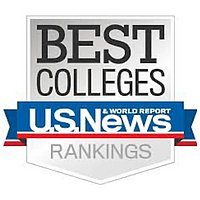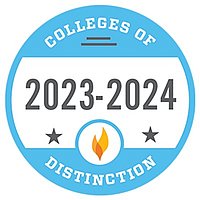
On July 4, 2025, the One Big Beautiful Bill Act was signed into law. This law introduces changes to some federal student aid programs, including the Federal Direct Loan program. We are closely reviewing the new legislation to understand what it means for our students and their families. As more details become available from the U.S. Department of Education and other authorities, we will share updates, including key dates and any steps that may be required.
And we're committed to doing everything we can to make it possible for you to choose LCU—that's why
100% of first-time freshmen receive scholarships or grants.

The Student Business Office—sometimes called Student Accounts, the Bursar’s Office, or the Cashier’s Office—is here to help guide you through the financial side of your college experience.
Scholarships
There are a variety of ways to fund your education at LCU—see if you qualify for a scholarship or grant!
Apply for Aid
Financial assistance awards are extremely important in determining your financial preparedness for your college education.
Financial Aid Forms
Find the forms needed to apply for, accept, and navigate your financial assistance options.
Net Price Calculator
This tool helps estimate your potential costs, including grants, scholarships, and loans.
If your family has experienced financial hardship that was not accurately reflected on the Free Application for Federal Student Aid (FAFSA), the LCU Financial Assistance Office can review the financial information for consideration of special circumstance. The Department of Education allows financial assistance offices to review special circumstance situations on a case-by-case basis and allows for adjustments to the data elements on the FAFSA.
The following examples may be considered as Special Circumstance situations:
Loss of Income for the Student and/or Parent may include:
- Loss of employment or reduced work hours.
- A divorce or separation of a spouse or parent.
- The death of a spouse or parent.
Additional Expenses for Parent or Student may include:
- Unusual Medical and/or Dental Expenses
If a loss of income has occurred or unusual expenses have been incurred, it may affect the results of the FAFSA since the Estimated Family Contribution (EFC) is based upon the previous year’s income information. The loss of income or unusual expenses may affect your ability to contribute towards your or your child’s education. A loss of income or additional expenses could reduce the EFC, which may result in additional need based eligibility. Special circumstance requests will begin to be reviewed during May for the next award year. Documentation of the loss of income or additional expenses must be submitted along with the special circumstance application. Due to the volume of special circumstance requests, it may take several weeks to complete the review process.
Please contact the Financial Assistance Office at FinancialAssist@LCU.edu for assistance with the special circumstance process.




